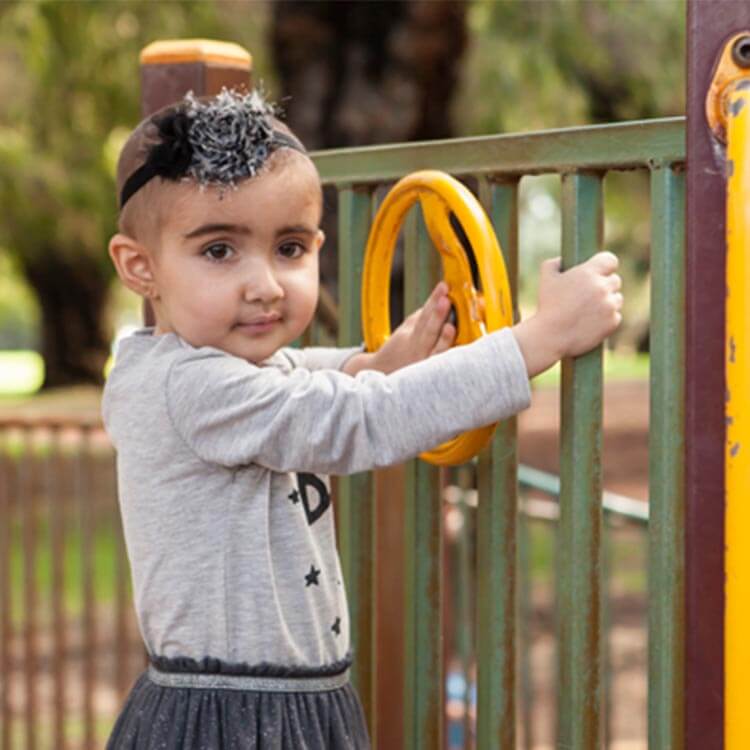Search
Research
Moorditj Marp (Strong Skin) Evaluation and development of culturally relevant healthy skin storybooksCo-designed and in collaboration with community members, the impacts of this project will directly benefit families by building awareness, empowering decision-making, and improving confidence around the recognition and management of skin conditions for Aboriginal children.
Research
Multi-site validation of a suite of clinical outcome measures for clinical trial readiness in the CDKL5 Deficiency DisorderHelen Jenny Peter Leonard Downs Jacoby MBChB MPH BApplSci (physio) MSc PhD BA (Hons) MSc Principal Research Fellow Head, Child Disability
Research
BENEFIT - Breastfeeding and Eating Nuts and Eggs For Infant Tolerance TrialDebbie Susan Palmer Prescott BSc BND PhD MBBS BMedSci PhD FRACP Head, Nutrition in Early Life Honorary Research Fellow debbie.palmer@uwa.edu.au
Research
National School Readiness ProjectResearchers at the Institute were engaged to undertake the National School Readiness Project, which aimed to describe current practice across education authorities in assessing or describing child development status at school entry and use evidence to identify areas where the scope/quality of curren
Research
iPLAYCE StudyHayley Christian BSc (1st Class Hons), PhD (Distinction) W.Aust. Head, Child Physical Activity, Health and Development; Ascend Senior Research Fellow
Research
Phase 2b Randomized, Double-blind, Placebo-controlled Study to Evaluate the Safety and Efficacy of MEDI8897, a Monoclonal Antibody With an Extended Half-life Against Respiratory Syncytial Virus, in Healthy Preterm InfantsJennifer Peter Kent Richmond RN MBBS MRCP(UK) FRACP Clinical Research Manager Head, Vaccine Trials Group Jennifer.Kent@thekids.org.au Clinical

Research
Evaluation of the Community Playgroup ProgramThis evaluation explored the facilitators & barriers that influence Community Playgroup attendance, and the impact of attending playgroups on child development.
Research
Pharmacokinetics of intramuscular versus subcutaneous administration of Benzathine Penicillin GBenzathine penicillin G (BPG) has been in use since the 1950s for treatment of skin infections, bacterial pharyngitis, syphilis and prevention of recurrent episodes of acute rheumatic fever (ARF)
Research
PIFA - Pertussis and Food allergy, a case-cohort study of the association between pertussis vaccination in infancy and the risk of IgE-mediated food allergyPat Peter Tom Holt Richmond Snelling PhD, DSc, FRCPath, FRCPI, FAA MBBS MRCP(UK) FRACP BMBS DTMH GDipClinEpid PhD FRACP Emeritus Honorary Researcher
